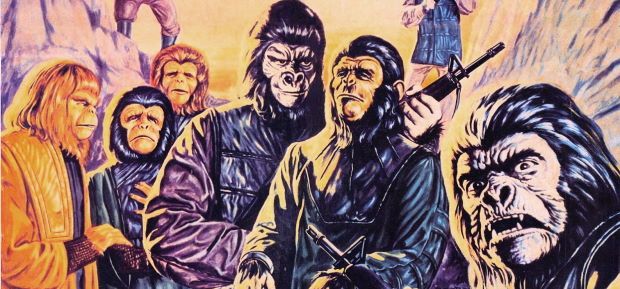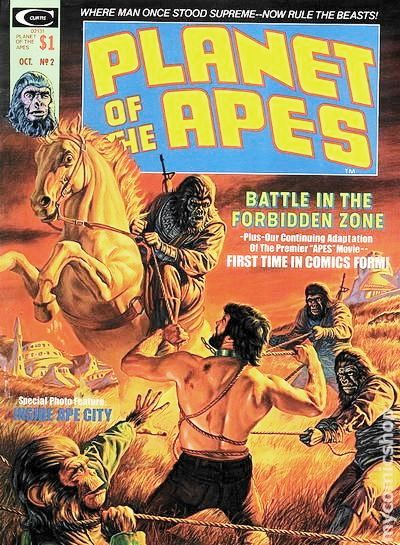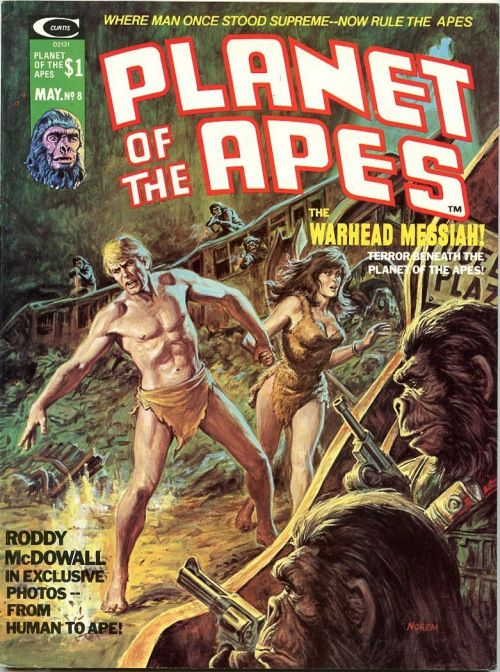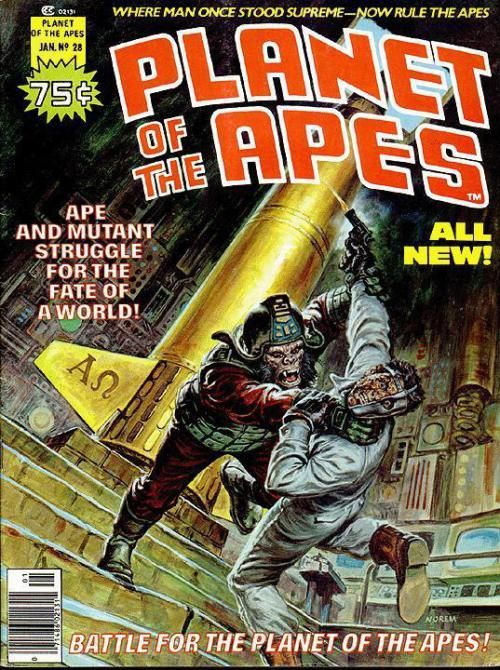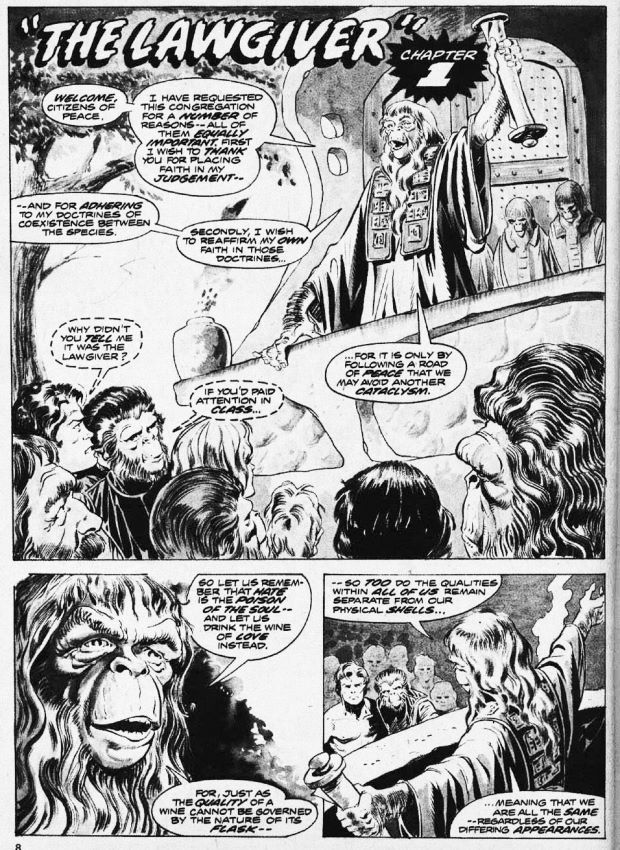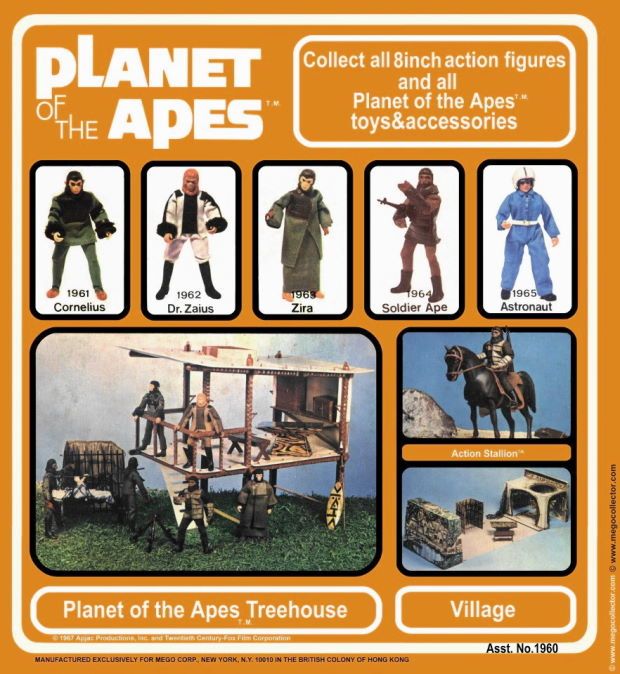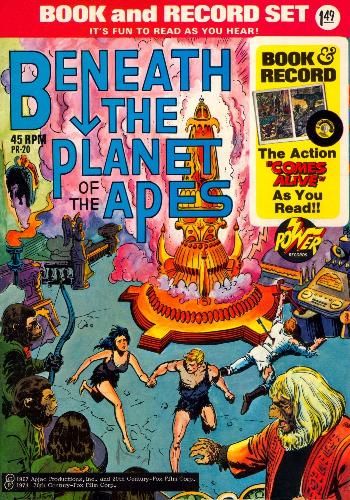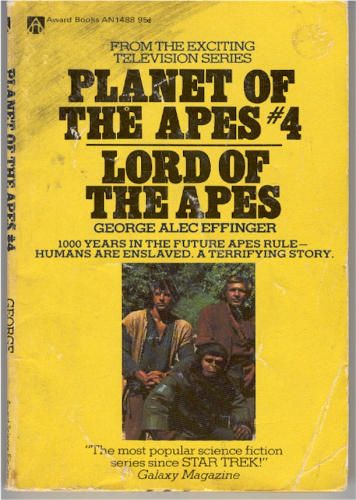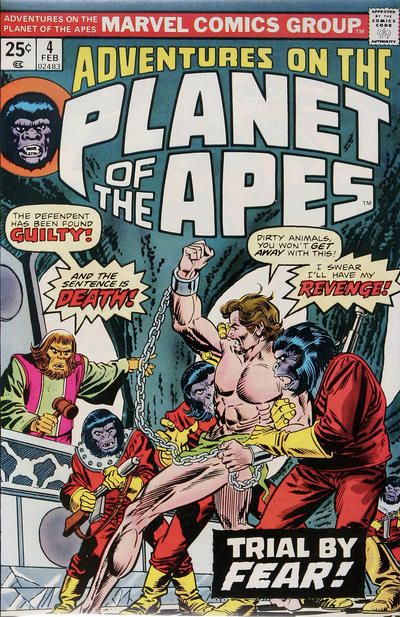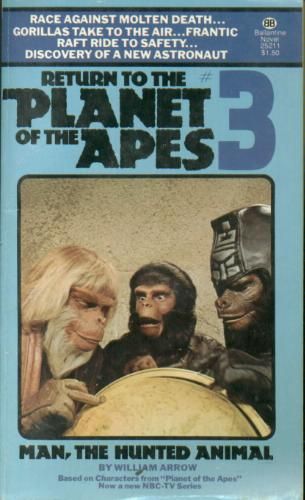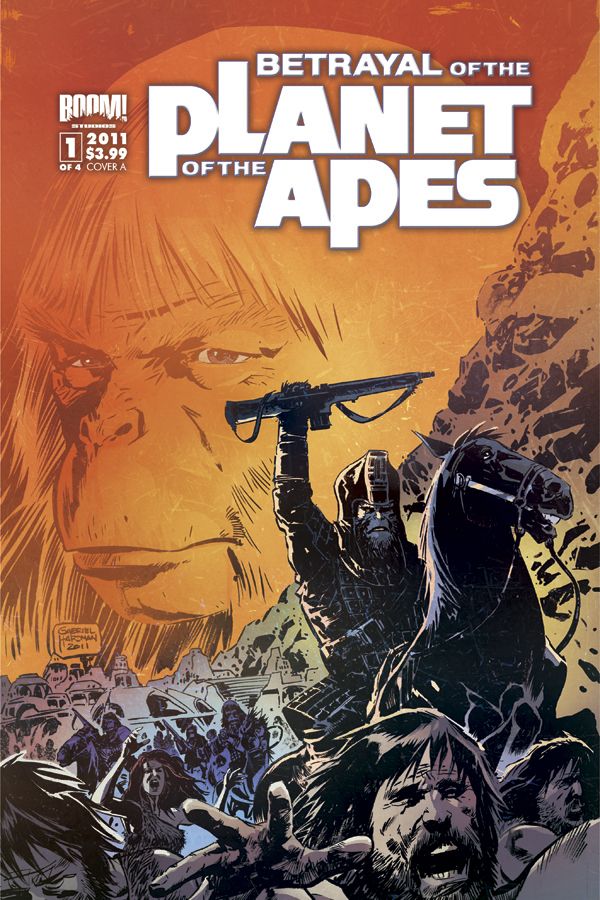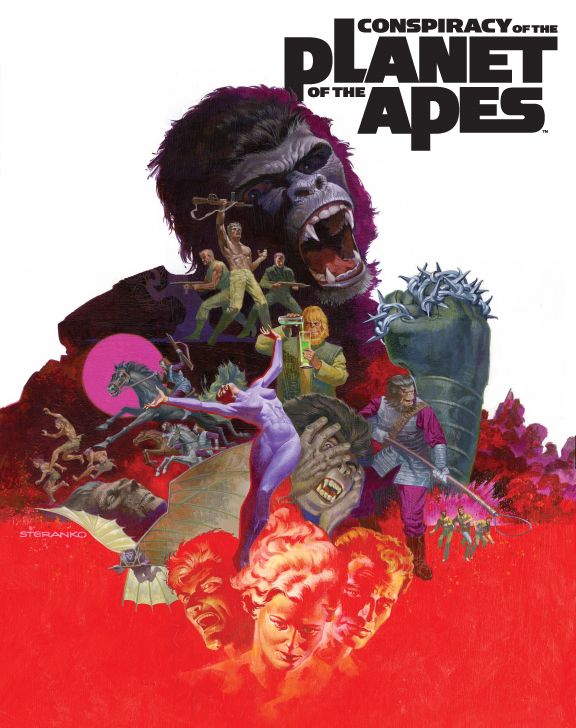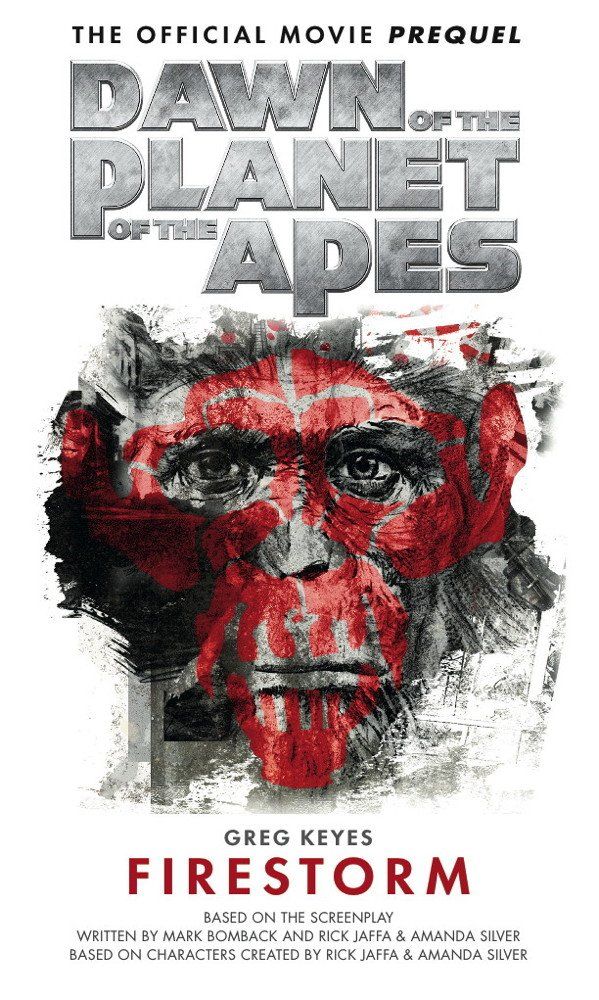For me these things always seem to come in waves.
Last week it was a whole bunch of Edgar Rice Burroughs and Robert E. Howard-type stuff showing up all at once. This week it seems like it's all about Planet of the Apes.
First of all, on a recent trip to Value Village, Julie and I found a whole bunch of 'vintage magazines' at two dollars each, and among them were a number of Marvel's old Planet of the Apes magazine comics.
That is one of my few remaining grail quests when it comes to collecting back issues and I vacuumed them all up. Combined with what I already had here at home, I now had an unbroken run of the first fifteen issues, and then another nice run from #18 to #25. This meant that after forty years of trying to assemble the pieces, I was finally going to get to read Doug Moench and Mike Ploog's "Terror on the Planet of the Apes!" in its entirety.
So I put aside all the stuff on the review pile and dived into my stack of old Apes comics, gloating. (Technically, "Terror" was two long serials, I discovered. But I have all of the first, and most of the second.)
The reason this was so huge for me was... well, I guess just because Planet of the Apes was a pretty big deal for us Bronze Age kids. When CBS started airing the movies on television in 1973, they scored huge ratings and there was a cascade of licensed tie-in books and toys and all sorts of stuff.
It didn't last long. The TV series in 1974 and the subsequent Saturday morning cartoon in 1975 were the last gasps of that little merchandising boomlet, but I was all over the books and comics that came out of it and that was enough to get me hooked.
(I wish I'd hung on to the paperbacks... they're worth a fair hunk of dough today.)
All of this is by way of saying, even though we have the movies and the TV series and even the cartoon here on DVD, for me the Apes franchise has always been as much or more about the printed page as it has been about what's on the screen. Since I came to the stuff before the age of home video, I'd read all the books long before I actually saw the movies.
I still kind of keep up. I didn't think much of the Tim Burton film or the comics that came out of it (although the comics were better than the movie) but I really liked the stuff Boom! Studios put out, and also the novel from Andrew Gaska, Conspiracy of the Planet of the Apes.
Anyway. All of this is preamble to the fact that there's a new tie-in novel by Greg Keyes just out, called Dawn of the Planet of the Apes: Firestorm, and when Titan Books offered me a review copy I lunged at it with the kind of naked greed that is really rather unseemly for a professional reviewer and columnist.
I couldn't help it. I'd already been wallowing in Apes lore with my back-issue bonanza, and I'd really enjoyed Rise of the Planet of the Apes, as well. So I was very curious as to what this book would be about.
And Mr. Keyes did not disappoint. Firestorm is essentially the "what happened next" story that tells us what happens to Caesar and the other apes that fled into the forest at the end of Rise, but it's much more than that; it's also the story of how human civilization begins to fall. Titan is pushing it as the 'official prequel/bridge story' but don't let the trade dress distract you, it's just a good book on its own. You don't have to have seen Rise of the Planet of the Apes to enjoy it, and I have no clue what the upcoming Dawn of the Planet of the Apes is going to be. That didn't slow me down at all. I started it in an evening that ended up going well into the wee hours-- I read it in a single sitting just because I couldn't stand to put it down.
That doesn't happen to me very often. I was so struck by the novel, in fact, that I asked Tom Green at Titan to set up an e-mail mini-interview with Mr. Keyes, and here it is. Enjoy.
*
There's definitely an old-school PLANET OF THE APES vibe to the way you structured the book, particularly with the character of Clancy the sympathetic primate psychologist, the political subplots of the San Francisco elements of the story, and also the fact that, ultimately, it's mankind's tendency towards self-destruction that is the villain of the piece. Was that on purpose? Were you a fan before you took this on?
Keyes: I was a fan. I saw the movie on television during the seventies and immediately found the book in the library. I felt my job was to as respectful of the material as possible – and that not only includes the book and original movie, but Rise (which I watched many times) and the upcoming Dawn of the Planet of the Apes, which I read as a script.
How did the idea of a 'bridge' novel come about? Did you pitch it or did they come to you? What are the unique challenges in doing this kind of an in-between story and how did you approach them?
Keyes: I’m not sure where the idea originated, but it was not with me. It was probably the result of some sort of conversation between the folks at Titan and Fox. Once they concluded there would be a bridge novel, Steve Saffel at Titan contacted me to see if I was interested. Steve and I had worked previously, notably on a trilogy we did for Babylon Five and my own Kingdoms of Thorn and Bone books, and the idea of working in the Planet of the Apes universe appealed to me, so I agreed.
There have always been differentiations in the PLANET OF THE APES mythology between the chimps and the orangutans and the gorillas, but they were always based on anthropomorphic human characteristics. I think you may be the first of all the APES writers to really dig in to the biology and science of primate research and incorporate that into the story. Can you talk about that a little bit? Was that your own idea? Tell us about the research process.
Keyes: My university degrees are in Anthropology (I have masters and am ABD for a PhD. I will never finish) and as a grad student I taught it at the University of Georgia. Primatology was not my specialty, but I’ve always been fascinated by non-human primates, so the research was easy. I also contacted two good friends – Warren Roberts and Teri Hunnicut. Warren is a primatologist who has worked with language apes, and Teri worked to rehabilitate abused apes. Their insights were invaluable. I felt that especially at this early stage, when Caesar’s troop are still very close to the apes we know, it was important to put their story in that context – bearing in mind that they are also becoming something quite different as the same time.
What's next? Are there further original novels planned?
Keyes: In terms of Planet of the Apes, I haven’t heard anything. I would do another book if asked, but there are also lots of awesome writers out there who could bring their own perspectives to the Planet Of The Apes universe.
Any other projects you want to let our readers know about?
Keyes: Right now I’m doing a novelization of Interstellar, the new Chistopher Nolan project. For those who enjoyed my take on non-human primates, I dealt with them in a quite different way in my first novels, The Waterborn and The Blackgod -- both of which should soon be available as ebooks – and in the related short story collection The Hounds of Ash and other Tales of Fool Wolf.
*
So there you have it. Many thanks to Greg Keyes for his time, and really, you should check the book out, it's terrific. And as always, my appreciation to editor Tom Green for setting it up.
Have a great weekend, all; tomorrow my students and I will be tabling at the Olympia Comics Festival, so if you are in the neighborhood, please do come and say hello. I'll have a couple of copies of the Green Ghost book, as well, and I'll give you the author's discount if you are interested in one of those and even scribble in it for you.
And on Sunday, I'm a guest panelist at a taping of Radio Versus the Martians with my old friend Mike Gillis. "The McLaughlin group, but for nerds," is how Mike explained it to me. It should be a lot of fun. I'll let you know when my episode is up but in the meantime you should check out the earlier episodes at the link, here.
Oh, by the way-- the subject under discussion for this Sunday's taping? The whole Planet of the Apes phenomenon.
Like I said, sometimes it comes in waves.
See you next week.

